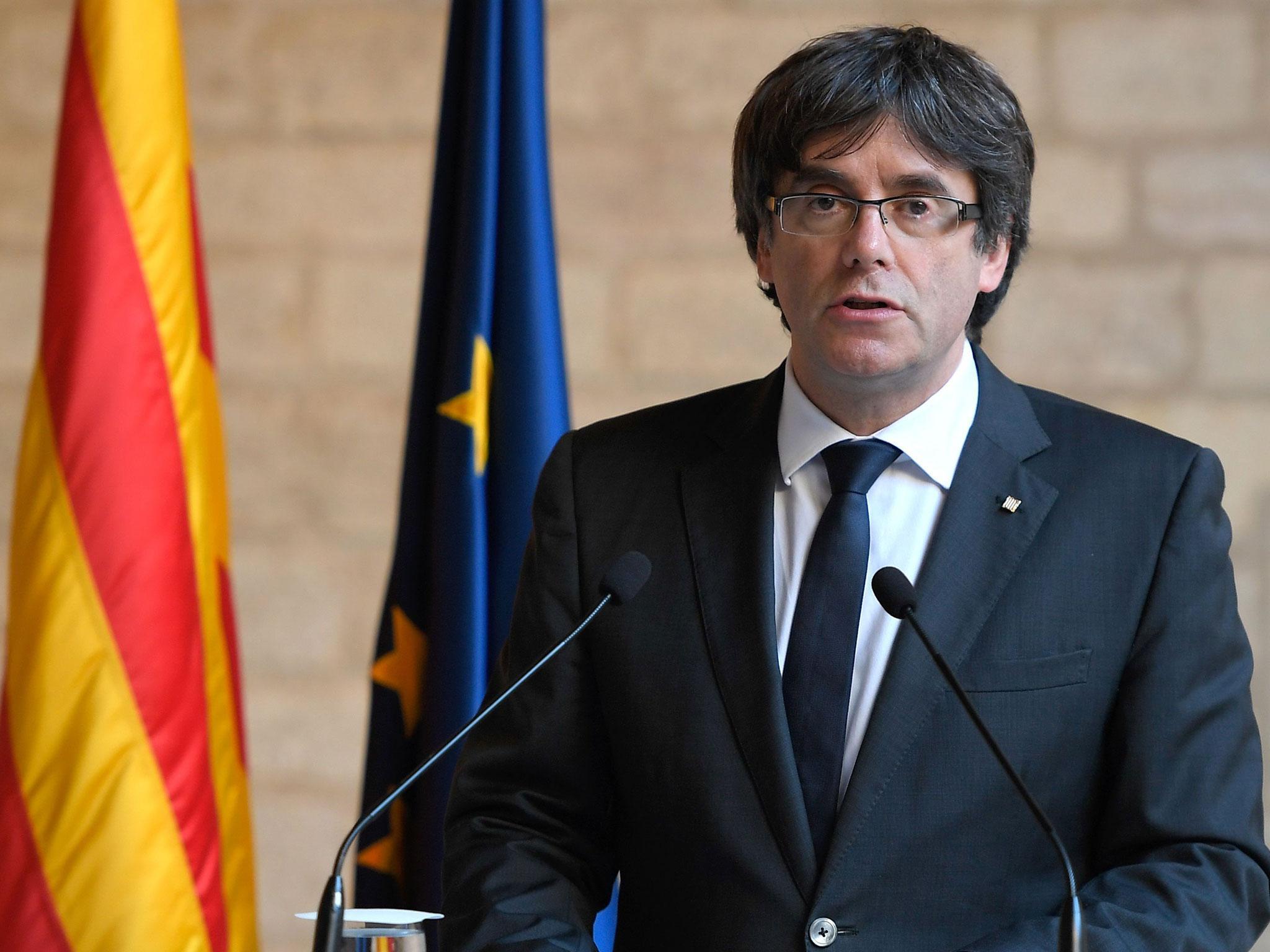Belgian police have hours to decide whether to deport ousted Catalan leader Carles Puigdemont
Charges faced include sedition, rebellion, and misuse of public funds

Carles Puigdemont, the deposed president of Catalonia, is being questioned under arrest in Brussels after he and four of his colleagues handed themselves over to the Belgian authorities. The move follows the issuing of a European warrant by a court in Spain as the confrontation between Madrid and the separatists continued to escalate.
An investigating judge in Brussels will have until 9.17am on Monday morning – 24 hours after the men surrendered to the authorities – to decide whether or not they will be held in custody or released on bail while the extradition process gets under way.
The charges faced by the exiled Catalan leaders – sedition, rebellion, misuse of public funds and perjury – carries a maximum sentence of 30 years imprisonment on conviction. Mr Puigdemont’s Belgian lawyer, Paul Bekaert, has said that his client will appeal against extradition, which means that proceedings may drag past 21 December, the date the Spanish government has called elections in the region.
The Catalan nationalists have strong support from Flemish political parties in Belgium. The fleeing of Mr Puigdemont and his colleagues to Brussels had been preceded by the country’s immigration minister, Theo Francken, saying they would be able to seek asylum.
Today, the Belgian vice-premier and interior minister stated that Madrid had overreacted and all efforts must be made to ensure that Mr Puigdemont and his colleagues get a fair trial if he is returned to Spain. Jan Jambon, who criticised the “silence” of the European Union on the issue, said: “I am just questioning how a European Union member state can go this far and I am asking myself whether Europe is to have an opinion on this.”
Mr Puigdemont had called for a coalition of the separatist political parties to present a united front in elections to be held in December before turning up at the police station. An online petition calling for unity for the independence movement had, it was claimed, gathered 50,000 signatures within a few hours.

The uncompromising reaction of the government of Mariano Rajoy, which has included the jailing of eight Catalan ministers, appeared to have strengthened the position of the separatists. Two of the most recent opinion polls show that the independence seeking parties would gain around 54 per cent of the votes. However, this may be just short of the majority needed, under Spanish law, to revive the secession campaign.
The separatist parties have been divided over the best strategy for seeking independence and there has been criticism among many politicians and at the grass-roots level over Mr Puigdemont fleeing to Belgium.
Talks, however, have been under way in the last few days in an attempt to arrive at a consensus amid apprehension that a poor result for the independence movement at the December polls may be used by the Rajoy government to bring in rules that will make secession even more difficult in the future.
While political manoeuvrings go on behind the scenes, activists have called for street protests to continue. Another demonstration was held in Barcelona on Sunday afternoon, although the numbers were down from the tens of thousands who had been marching in recent weeks.
Ariadna Olivas, one of the organisers, said: “People cannot keep on turning up every day. We shall see the figures go up as the election campaign gets under way. This is now going to be a long road starting with victory in the election and then starting the independence process. Meanwhile the brutal behaviour of the Rajoy government will be noticed in Spain as well as internationally.”
The Catalan civic groups Assemblea Nacional Catalana and Omnium Cultural – two of whose leaders were imprisoned last month on sedition charges – have called for a general strike next Wednesday and mass protests next weekend.
Join our commenting forum
Join thought-provoking conversations, follow other Independent readers and see their replies
Comments
Bookmark popover
Removed from bookmarks